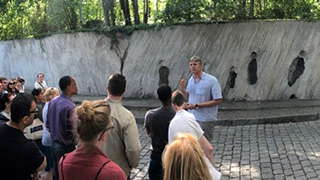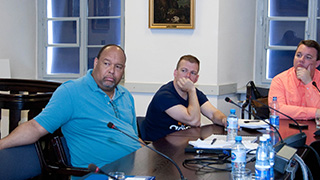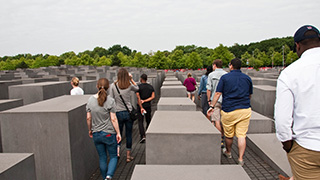Seton Hall Seminarian Reflects on Ethics Fellowship at Auschwitz - Seton Hall University
Wednesday, May 8, 2019

Now in its tenth year of operation, FASPE looks at how and why professionals across five disciplines—business, journalism, law, medicine, and religion—abandoned their ethical guideposts during the onset of the Holocaust. Further, the program frames those questions within a contemporary study of ethical issues.

The Program

One of the most powerful moments for De Silva was a trip to the summer house where a group of high-ranking Nazi officials planned the "Final Solution," now often referred to as the Wannsee Conference. The Fellows sat inside the house discussing the question "What is Evil?" and how their professions could have acted differently. For De Silva, it reinforced the power of place. "My faith allows me to define and study evil; however, it is another thing to see the effects of evil firsthand and to sit in its home," said De Silva.
Through this experience, De Silva says he developed a greater understanding of the influence his profession holds and the weight it carries in society. As part of his ongoing commitment to ethics within the Church, he has begun publishing essays in a number of media outlets and works on a FASPE newsletter with a small team of clergy. The members identify articles that lend themselves to analysis for the newsletter and write introductions to each about the ethics overlay, hoping to share some of what they learned and experienced.
The Fellowship also helped shape how De Silva views his role, especially as he prepares to be ordained to the priesthood in late May of this year. He feels passionate about his responsibility to lead ethically going forward and has found wider meaning in the admonition, "Never Again."
To read Deacon De Silva's latest contribution to the FASPE newsletter, see Religious Law or Civil Law.






